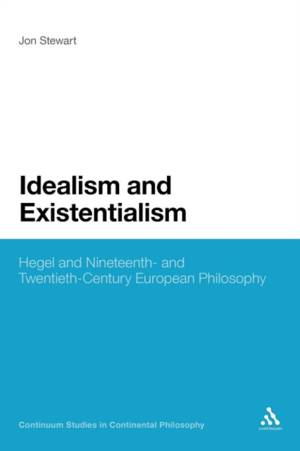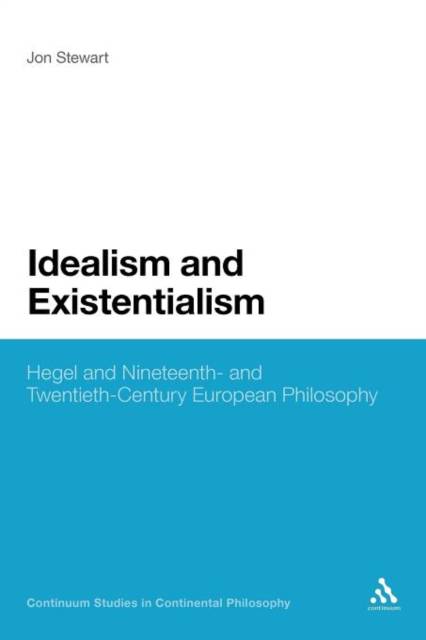
- Afhalen na 1 uur in een winkel met voorraad
- Gratis thuislevering in België vanaf € 30
- Ruim aanbod met 7 miljoen producten
- Afhalen na 1 uur in een winkel met voorraad
- Gratis thuislevering in België vanaf € 30
- Ruim aanbod met 7 miljoen producten
Idealism and Existentialism
Hegel and Nineteenth- And Twentieth-Century European Philosophy
Jon StewartOmschrijving
The history of Continental philosophy is often conceived as being represented by two major schools: German idealism and phenomenology/existentialism. These two schools are frequently juxtaposed so as to highlight their purported radical differences. There is a commonly held view that an abrupt break occurred in the nineteenth century, resulting in a disdainful rejection of idealism in all its forms. This break is often located in the transition from Hegel to Kierkegaard. The history of philosophy in the first half of the nineteenth century has thus been read as a grand confrontation between the overambitious rationalistic system of Hegel and the devastating criticisms of it by Kierkegaard's philosophy of existence.
This work aims to undermine this popular view of the radical break between idealism and existentialism by means of a series of detailed studies in specific episodes of European thought. As a whole, this book represents an important attempt to demonstrate the long shadow cast by Kant and Hegel over the subsequent history of European philosophy.Specificaties
Betrokkenen
- Auteur(s):
- Uitgeverij:
Inhoud
- Aantal bladzijden:
- 304
- Taal:
- Engels
- Reeks:
- Reeksnummer:
- nr. 44
Eigenschappen
- Productcode (EAN):
- 9781441159687
- Verschijningsdatum:
- 29/03/2012
- Uitvoering:
- Paperback
- Formaat:
- Trade paperback (VS)
- Afmetingen:
- 156 mm x 234 mm
- Gewicht:
- 421 g

Alleen bij Standaard Boekhandel
Beoordelingen
We publiceren alleen reviews die voldoen aan de voorwaarden voor reviews. Bekijk onze voorwaarden voor reviews.







